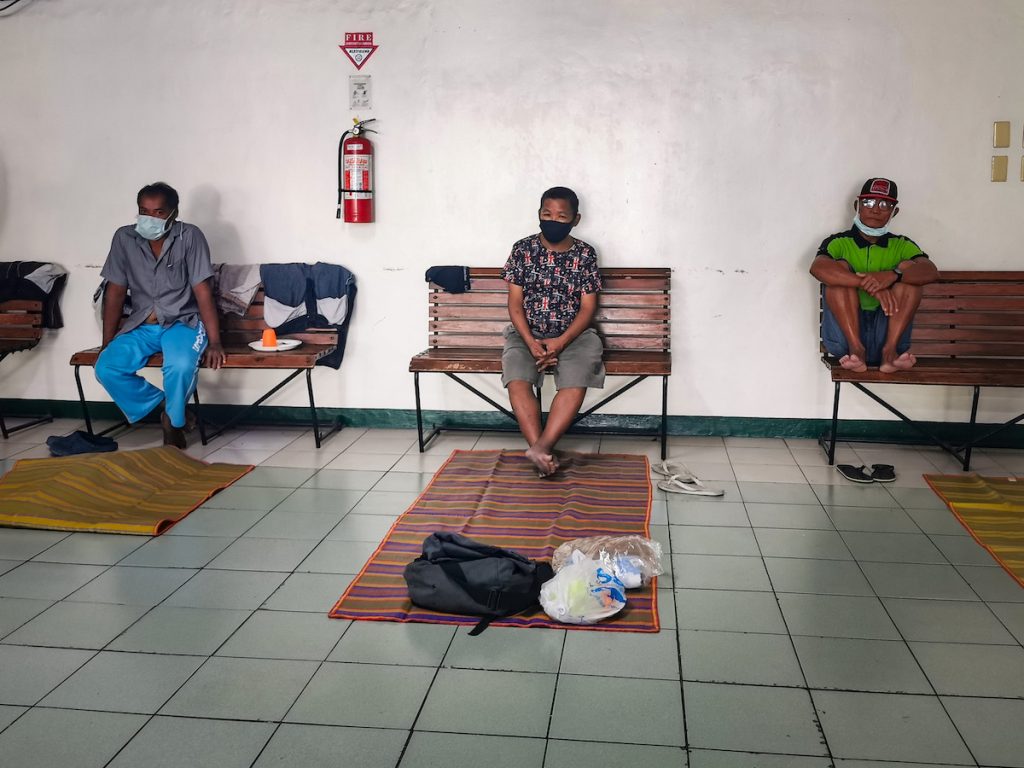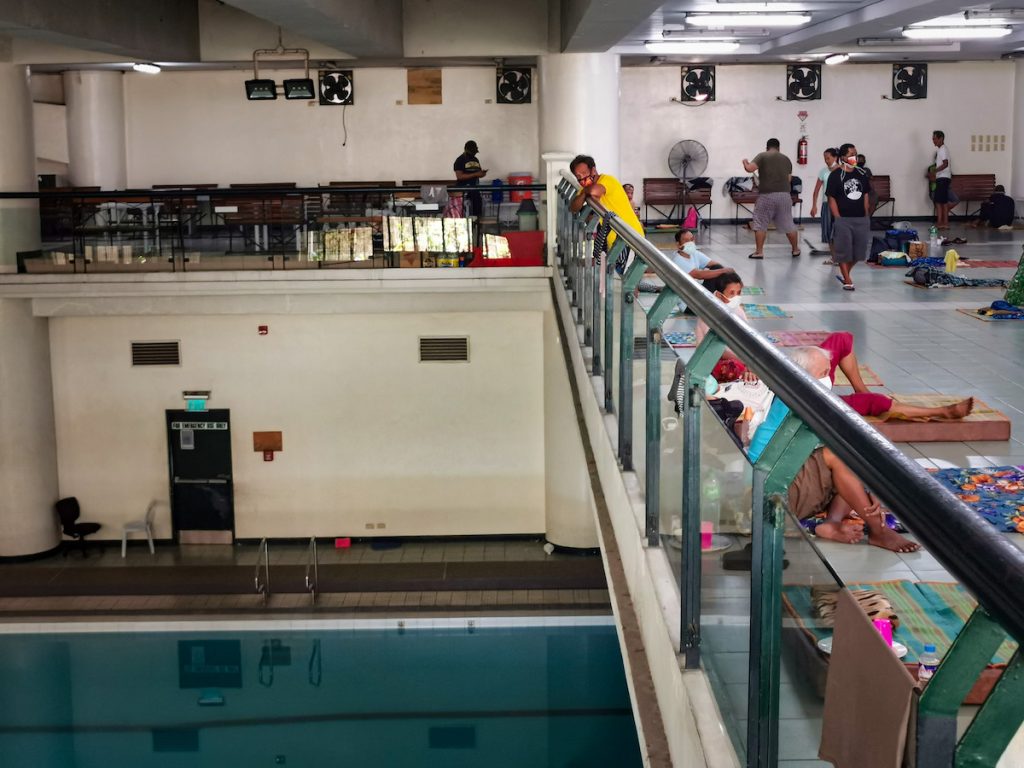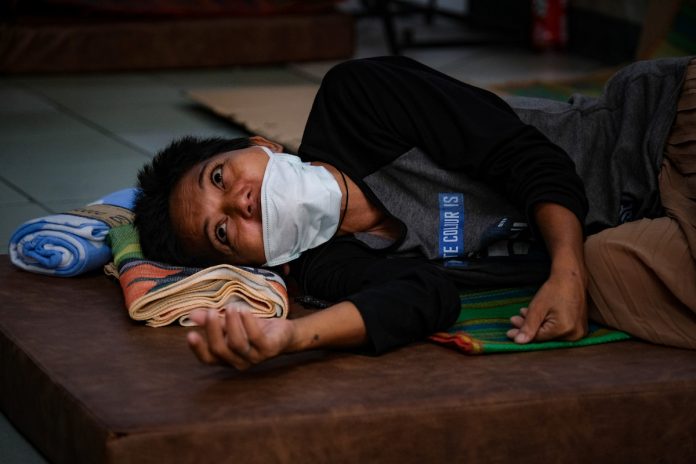“Stay at home” is drilled daily into the minds of Filipinos from all walks of life, as the national government implements a month-long “enhanced community quarantine” over the main island of Luzon to curb the spread of the new coronavirus pandemic.
The whole country is in a state of near-total lockdown as local government units have started to put in place perhaps even stricter regulations than those in the National Capital Region.
But how do you “stay at home” when you have no actual home to speak of, except, perhaps, for a small piece of real estate on a sidewalk in front of a business establishment boarded up for the night?
Or maybe a spot near the shoreline of Manila Bay, where you’re lulled to sleep by the silent yet rhythmic onrush of ocean waves, even on an empty stomach?
While the Manila city government has an ongoing program to “rescue” street dwellers who really have no place to lay their weary heads at night, there’s simply too many of them to be taken care of by the Department of Social Welfare and Development.
So it’s providential that several Catholic schools in Metro Manila have done just that, by giving the homeless places where they can find solace and peace of mind despite a potential new coronavirus sneak attack.

Paco Catholic School has been accommodating 100 homeless people since the government declared the start of the enhanced community quarantine in the city.
In the school’s gym, the homeless now eat three meals a day and are able to get some sleep, a far cry from their previous predicament of being exposed to the elements day and night.
Apart from Paco Catholic School, other church-run schools, including De La Salle University, College of St. Benilde, St. Scholastica’s College, Malate Catholic School, and Espiritu Santo Elementary School have also opened their doors to the homeless, not only from Manila but other parts of the greater metropolitan area.
According to Father Carlo del Rosario, the chaplain of Paco Catholic School, Bishop Broderick Pabillo first suggested giving shelter to the homeless. Bishop Pabillo was designated by Pope Francis as apostolic administrator of the Manila Archdiocese after Cardinal Luis Antonio Tagle assumed a Vatican post in February.
But the temporary shelters for the homeless now need generous donations from kindhearted souls to sustain their operations.
Such donations will go a long way in providing the homeless with three meals a day and regular health check ups to ensure that they do not fall ill while they’re under the care of the archdiocese.
As of now, the school-cum-shelters can still afford to feed their transient wards for the duration of Holy Week, which starts on April 5, Palm Sunday, and ends on April 12, Easter Sunday.
The Manila Archdiocese hopes that alumni of the various schools tapped as temporary shelters for the homeless will respond to their appeal for much-needed assistance.

Those who want to do so can send their donations in cash directly to the participating schools, said Father del Rosario.
Due to the the sheer scope of the new coronavirus pandemic, no Filipino is safe, be they rich or poor. But the middle class and the affluent have enough means to shield themselves from its dire economic impact, while the poor and the homeless do not.
The new coronavirus is not only a grave health concern, but also, it is turning out, a serious humanitarian crisis. That’s because the main weapon of the government to prevent its rapid spread — the lockdown of whole communities and even countries — inevitably leads to an economic crisis which acutely affects society’s most vulnerable.
There must be a better way to deal with this crisis than just a frantic search for a vaccine that would prevent the disease from exacting a heavy toll on precious human lives. Sheltering the homeless is one act of compassion proving society is up to the task of prevailing over this grave crisis.
Ernesto M. Hilario writes on political and social justice issues for various publications in the Philippines. The views and opinions expressed in this article are those of the author and do not necessarily reflect the official editorial position of LiCAS.news.









